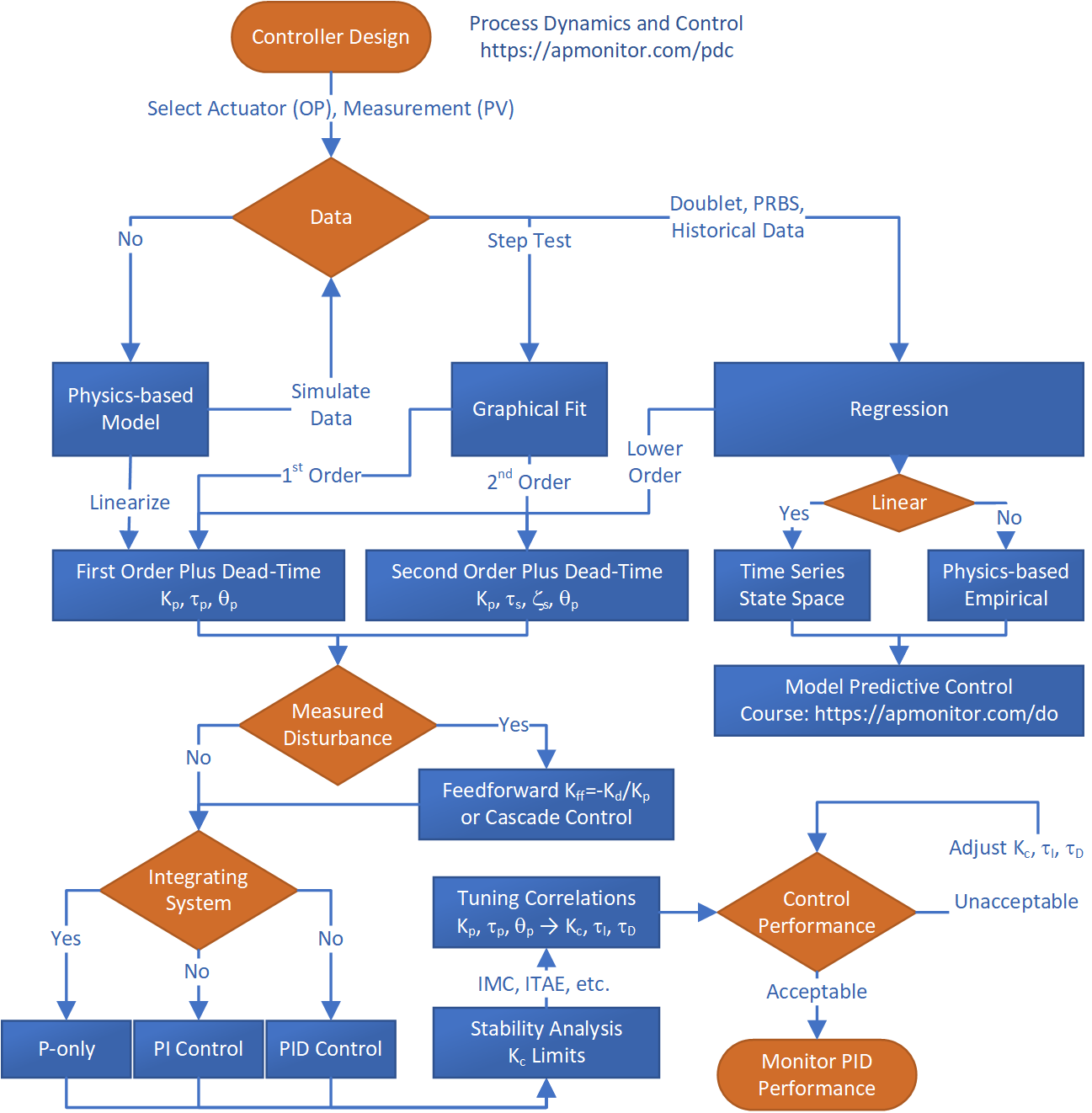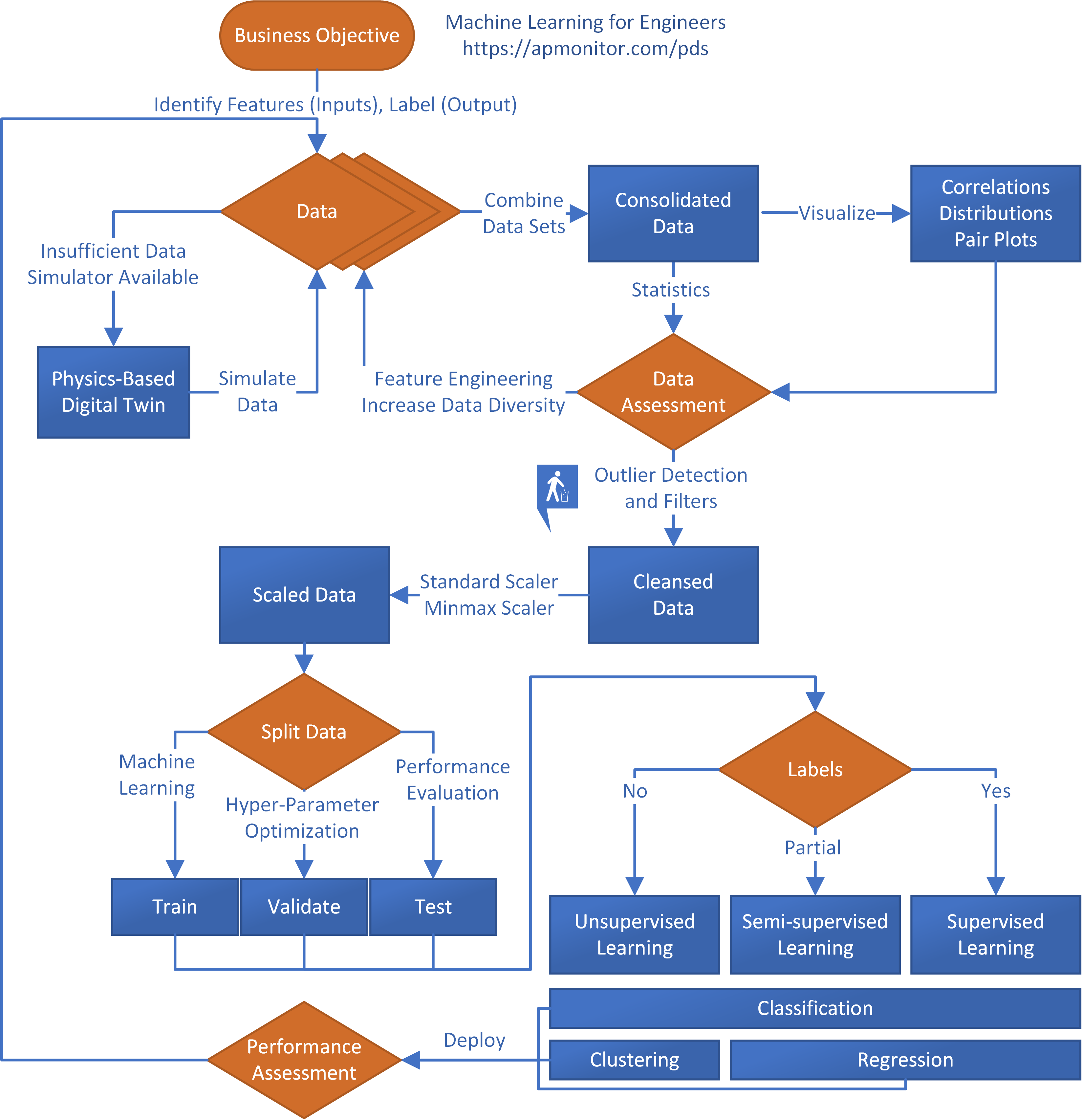Active Learning
Educational resources with active learning increase student engagement and knowledge retention. This educational project is the development of materials for instructors to use in process control, data science, and machine learning courses for engineers.
Process Dynamics and Control
In collaboration with MathWorks, this project created a replica of the Process Dynamics and Control course taught with Python by Professor John Hedengren at Brigham Young University, making the same content available with MATLAB and Simulink on Prof. John Hedengren’s “apmonitor.com” website and GitHub. The goal of such developments was to benefit chemical engineering students learning process dynamics and control, as well as instructors looking to leverage hardware for teaching process control. In presenting materials that are publicly available on a no-charge basis, PRISM strives to allow instructors to strengthen process control courses and bring chemical engineering students to enjoy a more hands-on and meaningful education.

The original Process Dynamics and Control course is publicly available. This website receives around 1k-2k visitors each day, with 5k-12k views on YouTube daily. Utilizing such existing content, 27 teaching modules which include lecture notes, assignments, quizzes and exams, and hands-on Temperature Control Lab (TCLab) hardware activities were created with MATLAB and Simulink. A TCLab kit may be purchased here.
The original goals for this project are:
- Develop 27 teaching modules with each module consisting of lectures, assignments, videos, and hands-on TCLab activities. Combine the 27 modules into a cohesive course with a schedule, 10 quizzes, and 3 exams. Publish curriculum materials on apmonitor.com.
- Make the developed TCLab modules including MATLAB live scripts and Simulink modules available for download on GitHub.
- Create a replica of the TCLab Course with Python YouTube video series.
- Have a conference paper and/or conference presentation highlighting developed curriculum materials with MATLAB and Simulink.
- Create and deliver a webinar to introduce the developed curriculum materials to other chemical engineering professors.
The realization of these goals are fulfilled with links to the MATLAB and Python repository and the MathWorks webinar with MATLAB Playlist.
The curriculum produced through this project was piloted in Fall 2021 with students in ChE436 Process Dynamics and Control course at Brigham Young University, with the modules presented at the 2023 AIChE Summer School for New Chemical Engineering Faculty in Golden, Colorado. Several faculty are interested in using the modules after seeing the results of the project.
Machine Learning for Engineers
Similar to the work done for process dynamics and control, PRISM is currently working on course materials for Machine Learning for Engineers. The current course, found at https://apmonitor.com/pds, consists of 36 modules and 18 case studies taught with Python. The goal is to translate this material to MATLAB.

This engineering course reviews theory and applications of machine learning to engineering applications with a survey of unsupervised and supervised learning methods. The course combines mathematical details with several case studies that provide an intuition for machine learning with methods for classification, regression, and dimensionality reduction. A second phase of the course is a hands-on group project. The engineering problems and theory guide the student towards a working fluency in state-of-the-art methods.
The planned developments for this project are as follows:
- Develop a replica of the Machine Learning for Engineers course.
- Make the learning modules publicly available on GitHub.
- Pilot materials in the Machine Learning for Engineers course at Brigham Young University with 10 students.
- Based on the pilot, present results at a conference.
- Create and deliver a webinar to introduce the developed curriculum materials to other engineering professors, hosted by MathWorks.
Project Support
We are grateful for the technical and financial support by MathWorks. This project is funded as donations to Brigham Young University to develop educational material for process dynamics, process control, data science, and machine learning models for educators.
